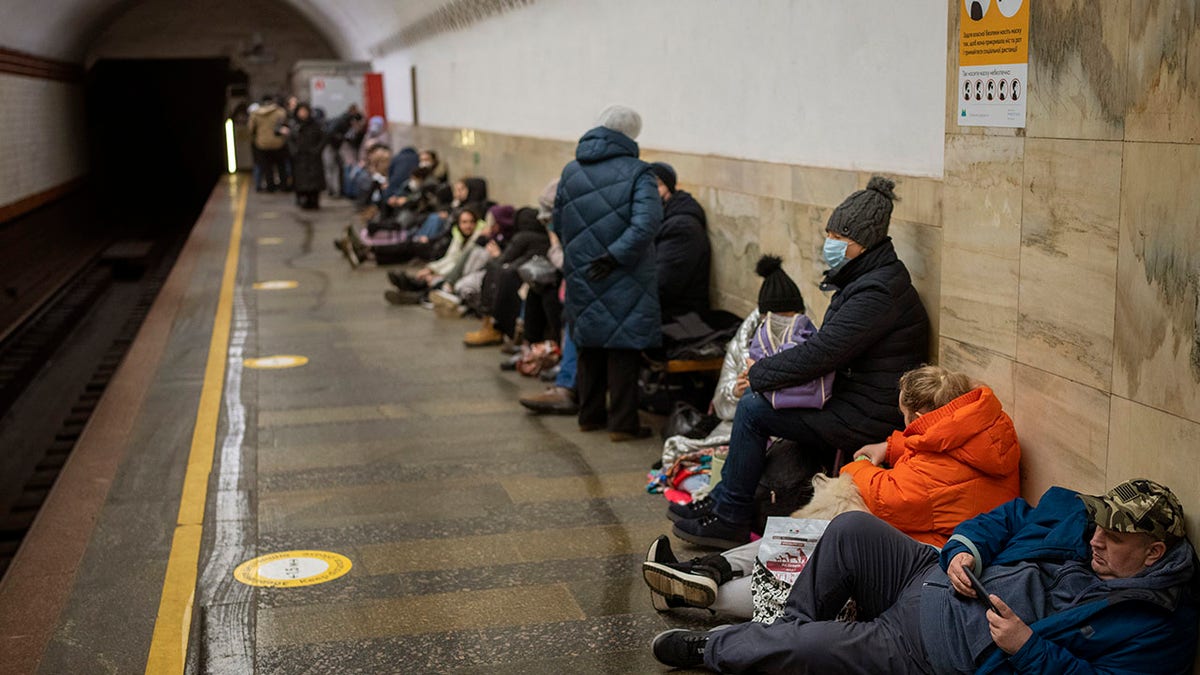"There have been tyrants and murderers [throughout history], and for a time they seem invincible, but in the end, they always fall. Think of it – always." -- Mahatma Gandhi
Since the Russian invasion of Ukraine began nearly two weeks ago on Feb. 24, people all over the world have watched on their screens the brutal destruction of apartments, supermarkets and city centers. They have also watched the heroic and likely hopeless resistance of the Ukrainian people ranging from farmers fighting tanks with tractors to outgunned, untrained mothers joining the front lines with Molotov cocktails.
Those witnessing the graphic news ask why? Why does Vladimir Putin direct such a horror? Why do the Ukrainians fight so fiercely against fearful odds with such courage? To understand the passionate resistance of the Ukrainian people to the fanatical, brutal assault of Stalinist Putin, look to the history of their national anthem, Ukraine and brutal Putin himself.
PUTIN'S UKRAINE INVASION AWAKENS ONCE-SLEEPY WESTERN NATIONS
As we see the massive overwhelming Russian troops, tanks and planes moving to crush the much smaller Ukraine resistance, an old Ukrainian song is often heard by crowds sheltering with children below ground. The crowds began to spontaneously sing a haunting melody beginning with the words, "Thou art not dead Ukraine … as in the Springtime melts the snow, so shall melt away the foe."

People lie in the Kyiv subway, using it as a bomb shelter on Feb. 24, 2022. (AP Photo/Emilio Morenatti))
A video of a housewife singing the song while clearing bombing debris became popular on YouTube and is now played all over the world. Written in the 1860s, the Ukrainian national anthem was banned in Stalin times. Humming it would bring a quick death sentence.
For hundreds of years until the Soviet period in the 1920s, Ukraine was a land of small farmers called Kulaks, much like the working farmers of Ohio or Iowa, and roving bands of herdsmen called Cossacks.
The Cossacks were generally considered Europe’s greatest horsemen, fiercest warriors and freest souls. Their songs, much like our Western songs, were played and sung by guitar players known as Kobzars. Their romantic and beautiful ballads sang of great love and fierce war on the steppes (plains) of Ukraine and of the rides of the famous Don Cossacks and explorers. They were the retained history and culture of Ukraine.
The Cossacks became loyal Romanov followers in the 17th and 18th centuries. The last great successful cavalry charges of history were Ukrainian Cossacks led by the so-called Black Baron in World War I, inexplicably breaking the back of modern Austrian machine gun and artillery units through courage and sabers.
Because of their love of freedom, the Ukrainians were enemies of the Soviets from the beginning, particularly Stalin. He levied a terrible revenge. As part of his own 1928-1932 "cultural revolution," Stalin determined to control ideology and culture, banning words like God, killing many thousands of priests, and purging the arts.
In 1931, the Kobzars in Ukraine were summoned to Kyiv to form a union and meet with Soviet leadership. Hundreds were instead shot and dumped into a secret mass grave with their instruments. Their songs and even their instruments were banned on penalty of death. Stalin then began the collectivization of all agriculture in this great breadbasket, seizing all land and forcing the entire population into collective farms owned by the State.
The collectivization experiment was predictability a failure. Stalin’s answer to reduced production was to initiate a slaughter in 1932-1934 sometimes called the Holodomor. Stalin seized most grain, including even the seed stocks required for the next year’s crop. Those who resisted and their families were shot. Wealthier families were sent to be worked and starved to death in notorious projects like the White Sea-Baltic Canal.
At least 6 million Ukrainians and perhaps many more perished by starvation and execution during the Great Famine as it came to be known – the greatest genocide other than the Holocaust in modern European history. Until their freedom from the Soviet Union in 1991, the Ukrainians were a bitter, enslaved people retaining in their hearts, but humming only secretly "thou art not dead, Ukraine."
Putin’s background controls Putin’s actions. His grandfather was Stalin’s cook, and his father a World War II exterminator of humans for Stalin. Putin continued in the family business as a KGB officer who, like Stalin, was a self-made man of steel who avoided all combat but utilized deftness and poison to accelerate his rise and eliminate opponents. Asked about Putin when he became president of Russia in 1999, Putin’s mentor Anatoly Sobchak said, "Putin is Stalin." Several days later, Sobchak and a bodyguard died suddenly of heart attacks without any prior history of coronary disease.
CLICK HERE TO GET THE OPINION NEWSLETTER
Like his idol Stalin, Putin pursued a dream of a Soviet empire that has graduated from being a retail poisoner of hundreds to mass murderer of many thousands and potentially millions in Ukraine. And like Stalin, Putin may well succeed in his conquest of the physical land of Ukraine through vast numbers and brutal weapons, overcoming courage and homemade Molotov cocktails.
Putin will fail, however, to conquer the souls of the Ukrainian people. Writing the songs is sometimes more important than writing the laws. When the Putin statues, like the Stalin statues, fall, the Ukrainians will again openly sing from their national anthem, "We’ll not spare either our souls or bodies to get freedom," and summon forth from their graves the long-gone Cossack leaders to once again fight for Ukraine’s freedom on the steppes.




